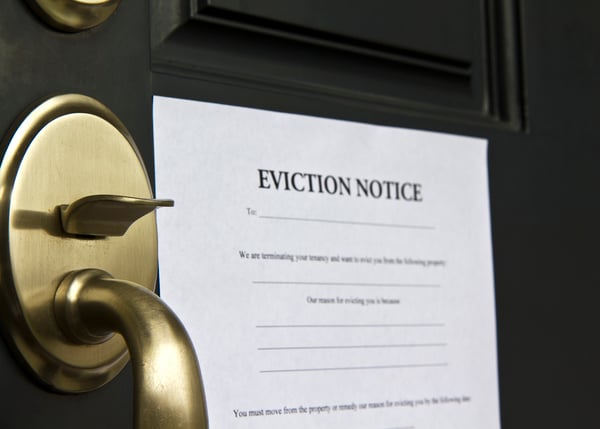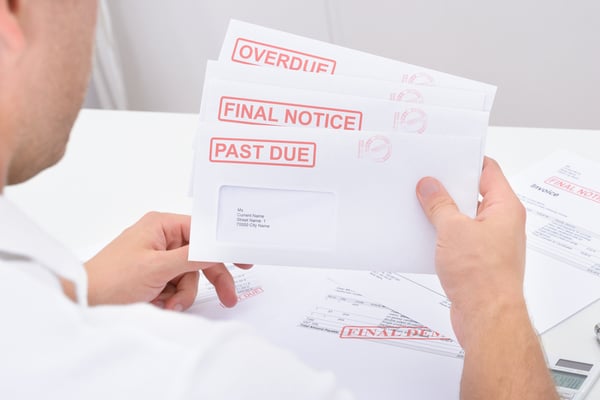You work to screen for good tenants, but sometimes we still have difficult renters. When it comes to eviction, it's important to know how to handle it within the law.
Eviction is not as simple as kicking out a tenant. It's a process of documentation and legal work to safely remove a tenant and protect yourself, too.
Tenants have rights, even when they don't follow the terms of a lease agreement. Whether it's a bad tenant or a tenant who can't pay rent due to unfortunate circumstances, eviction is difficult.
Take the time to learn the right process to evict someone from your rental property. Here's what landlords need to know about tenant evictions.

Understand Michigan Tenant Laws
Eviction is the legal process of removing someone from a property. The first step to evicting a tenant is understanding state tenant-landlord laws in Michigan.
You'll need a valid reason within the law to evict a tenant.
All lease agreements should include clauses about what violates the agreement. Be sure the agreement is clear on why a tenant can be evicted and the steps to removing a tenant from your rental property.
Clear documentation is critical from start to finish in the leasing process. Outline expectations within the lease agreement. If you need to evict a tenant, you'll have a signed document for reference to support a valid reason for eviction.
Reasons for Eviction
There are plenty of reasons to evict a tenant. In general, most evictions fall under a few main causes:
- Failure to pay rent.
This is the most common reason to evict someone from your property. It's the most basic of promises when signing a lease to rent a home: pay the rent on time, every month.
When a tenant fails to pay rent despite reminders and within a reasonable amount of time past the due date, you probably have a valid reason to begin the eviction process. - Damage to your property.
Accidents happen when renting homes. Work with your tenants when accidental damage happens to your properties.
If the damage is intentional or your tenant refuses to compensate for accidental damage, that's a different story. Maybe your tenant modifies your home. Or they have a raging party that results in significant damage to the property. If it's a serious issue that goes unresolved, you have reason to evict your tenant. - Violating the Lease Agreement
Depending on the terms of a tenant's lease, violations of the agreement are grounds for eviction. Violations include anything from unauthorized pets, physical modifications to the property without permission, too many nuisance complaints, or subletting without permission. - Illegal Activity
Any illegal activity including running an illegal business from your rental property is grounds for eviction. If illegal activity includes selling drugs from the property, this could help you expedite an eviction. - When a Lease Expires
You want your tenants to enjoy living in your rental property. But when the lease expires, they have to go.
Without a lease renewal, your tenants are required to leave. Occasionally you'll have a tenant who refuses to leave when they have no more legal right to live there. In that case, begin the eviction process to force them out of your property.
If your tenant's behavior doesn't fall under any of these acceptable reasons for eviction, but you feel you have cause to evict, consult a lawyer or property management company for guidance.

How to Evict
If you do have a valid reason for eviction, follow the legal process.
Unfortunately, you can't evict a tenant without property notice and legal filings. Showing up and demanding a tenant to leave immediately is not proper procedure.
Protect yourself and ensure your tenant leaves by following the law.
- Give a 30-Day Notice--This comes after you've sent reminders to pay rent or you've attempted to work with your tenant over any lease violations. They've refused to comply. Give them the 30-Day Notice.
- File the Eviction With the Court--You want the law on your side when evicting a tenant. File the eviction with all documentation supporting your reason to evict.
- Attend the Hearing--If the eviction process continues, attend the hearing. Your tenant must attend, as well. After the hearing, the court will provide a decision and clear expectations about the eviction.
- Evict the Tenant--Per the court's instructions, follow through on the eviction. Request help from local law enforcement if needed.
Let Your Property Management Company Handle Evictions
The process of eviction is one of the least enjoyable parts of being a landlord. Let your property management company do it for you. JMZ understands tenant-landlord laws in Michigan. We file all relevant paperwork to initiate and complete a tenant eviction when necessary.
Contact us with any questions about evicting tenants and to get started on letting us handle these things for you. You can also download our free Make-Ready Checklist to get your property ready for the next tenant. Click the link below to get ready!





